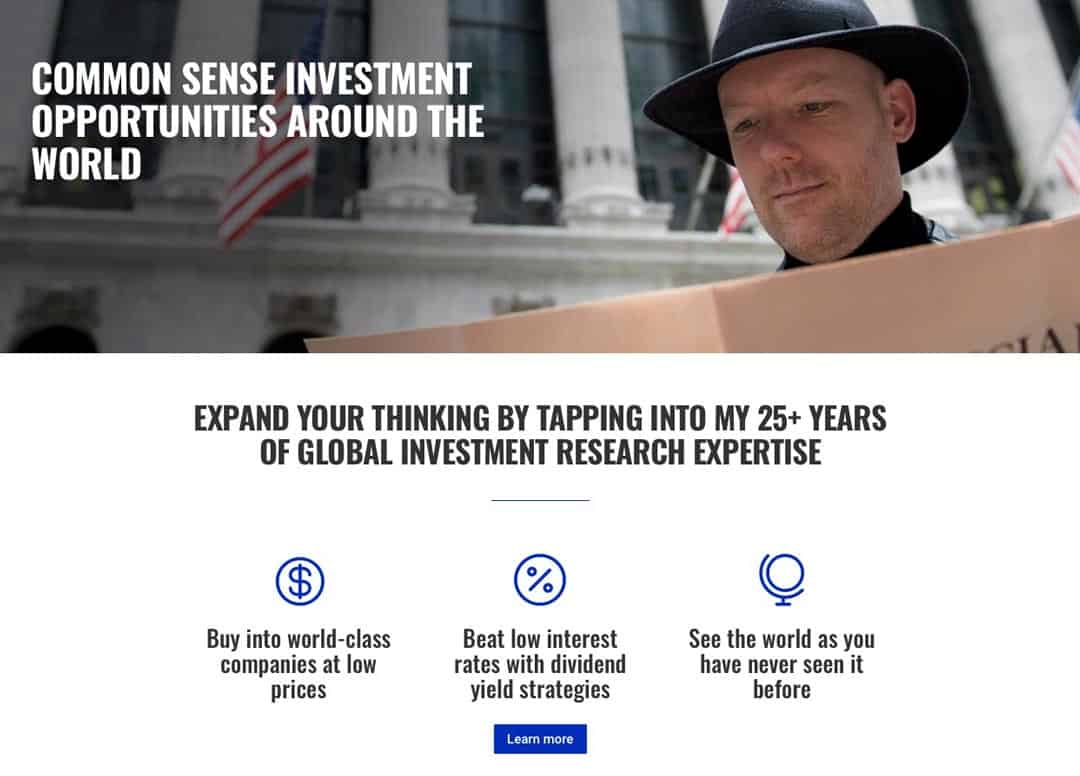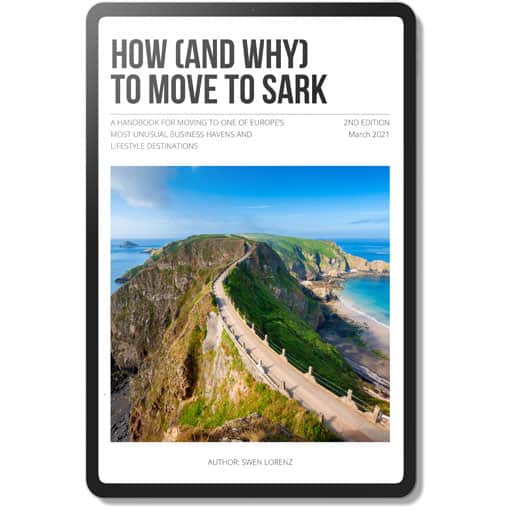Image by Wachiwit / Shutterstock.com
There are already hundreds of articles about the pros and cons of deleting social media accounts. After some initial reluctance, I decided to add yet another one because I found a few aspects that have not yet received enough attention in the public debate.
Over the past two years, I’ve gradually left all but one social media platform:
- Instagram was the first to go, simply because I found myself overwhelmed by having too many channels.
- My Twitter account went because I am addicted to news about those proverbial interesting times we live in, and I didn’t want to feed that monster even further.
- Facebook was my favourite platform for posting and engaging with my relatively large number of personal contacts but since I now write not one but two blogs, I felt it was time to focus my writing efforts on those.
My LinkedIn account is the last man standing. For now, that is.
Deleting Instagram, Twitter and Facebook had many entirely predictable outcomes and a few that surprised me.
Here is what I’ve learned.
1. More time to focus on what’s hiding behind the next curve
Social media is fun, it’s useful, and it can bring all sorts of benefits to you depending on how you choose to use it. I am not a social media basher.
However, inarguably, it easily sucks in a lot of time and brainpower. The day only has 24 hours, and I am continually questioning how to best spend my time.
There was a period when social media was relatively new, and when it offered unclaimed spaces as well as intellectual excitement. If you contributed quality content, there was a good chance for it to go viral and significant new audiences becoming aware of you. The simple fact that it was “new” made it fun to explore how it all works and what’s possible in terms of pushing boundaries. Its relative lack of regulation offered the opportunity to easily expose yourself to different forms of opinions and information that you would not have otherwise found, and to be experimental.
However, now that we are over a decade into the age of social media, much of the sector feels like what used to make it great just isn’t there anymore:
- How far and wide your content spreads is now primarily a question of how much money you are willing to spend. Most any interesting niche is occupied by someone who already has a large following. The available land has been grabbed and its owners now have moats around their properties.
- There is still some innovation happening in the sector, no doubt. But the times of social media leap-frogging to new frontiers is definitely over. Au contraire, Facebook, YouTube, Twitter and other platforms look somewhat aged indeed.
- Facebook now has a 1,400-page (!) handbook for political censorship and employs 15,000 content “moderators” (supported by an additional 15,000 staff members). Which nicely illustrates that social media is now a controlled space where those in control of the platforms decide what is WrongThink and WrongSpeak.
At the same time, new frontiers are opening up on the web:
- Decentralised platforms that cannot be controlled by anyone, specifically aimed at providing platforms where those who invest into them do not run the risk of losing their investment because of a change in algorithm or similar.
- “Counter-culture” products that seek to capitalise on what the big companies are doing wrong as well as the changing Zeitgeist.
- Services and websites that feel fresh and modern instead of stale and aged.
How do you find them, and how do you learn to use and utilise them?
They are out there and up for grabs, but it takes time to educate yourself about them and to build your presence on them. You also need to learn to distinguish between those that are unlikely to succeed and those that are.
With that in mind, I decided that each minute spent on the old platforms came with a potentially very high opportunity cost. I’d rather spend this time exploring what’s up-and-coming and where I might be able to claim and utilise new potential for myself, and do so on the back of conditions that are simply more attractive than what I can get from the established players.
It’s a bit like 2006 again, when social media first became exciting and relevant. But this isn’t the case for the established players. I want to be ahead of the curve and roll into the 2020s with the momentum of new developments providing wind under my wings.
Given that there are only 24 hours per day to allocate to what you do, I decided this alone was a good enough reason to take the risk and make space for something new to enter my life.
2. Civic duty to protect free speech
As touched upon in the previous point, censorship is now rife on social media.
People have been de-platformed for saying “Men are not women” (“transphobic”) and censored for saying “Learn to Code” (“hate-speech”).
Some platforms now de-platform you for what you have said or done on OTHER platforms.
Quasi-monopolists carry out de-platforming without due process, and often even without giving clear reasons.
I’d rather spend this time exploring what’s up-and-coming and where I might be able to claim and utilise new potential for myself, and do so on the back of conditions that are simply more attractive than what I can get from the established players.
Specific cases aside, it is well-known that once free speech is restricted in some cases, there is usually a slippery slope that leads to more and more speech eventually getting restricted. We now seem to be well on the road to losing our eternal right to free speech.
For the avoidance of doubt, I don’t mind companies spending money on politics within the legal framework provided for that.
However, much of what the big social media platforms are doing with regards to regulating what they consider can be said – both individually as well as a coordinated sector of companies – is now turning into a severe threat to free speech as we know it. These methods have turned into a danger for peoples’ entire existence, e.g., de-platforming on social media platforms is often followed by being cut off by payment providers, and it doesn’t take much imagination for selected individuals also soon finding their bank accounts closed down. The Chinese social credit system, where people who are considered “bad” are banned from booking flights and other vital aspects of leading a normal life, is increasingly a potential reality for parts of the Western world. Historically, such developments always start with authorities picking on a few “unpopular” groups and then rolling it out to apply for the entire population.
I wouldn’t vote for a politician who advocates “banning free speech” or “destroying the lives of those who I disagree with.” Neither do I feel that I can provide income to these companies anymore by being part of their business model.
With that in mind, I am doing my own “de-platforming” now, which means stopping to be part of the membership count and (indirectly) income statement of those companies that I believe have gone way too far in this regard.
Draining these companies’ income is the only message their leaders and shareholders will understand. I’d rather do my tiny bit towards that end than idly stand by and do nothing.
3. Your reputation in a changing world
Fears over privacy issues used to be over-done for a long time, but the problem has now come to the fore in a way like few imagined it possible.
Privacy in the digital age has always been a trade-off between giving up some of your privacy in exchange for services and an improved quality of life and being mindful of what personal information shouldn’t be shared under any circumstances.
I’ve always been aware of, but not overly obsessed with, privacy. For me, the trade-off between revealing some personal information to make use of a variety of new services was always one that I consciously and happily made. Until recently.

Looking for clever ways to invest your hard-earned cash?
Head over to my investment website Undervalued-Shares.com for common sense investment opportunities from around the world. Ideas that you won’t find anywhere else!
You can pick any number of examples and reasons from a long list of recent, severe breaches and abuses of personal data committed by large corporations, and social media companies were very much at the forefront of it. Unless you have spent your last few years living under a rock, you will be aware of the cases I am referring to. Collectively and even in some cases individually, these have been game-changing for the broader issue of privacy.
A more significant degree of control over your personal information is now a much more important and pressing matter than it was a few years ago.
Travelling across the world and speaking to a lot of people from different backgrounds, I have started to notice a change in perception. The world is increasingly dividing between a (currently: small) number of people who are now taking a very active, detailed interest in taking firmer control of their digital persona as part of their personal risk management, and a (currently: large) number of people who either do nothing at all about it or only deal with the problem on the surface (such as using the standard privacy settings on their devices, which helps but only takes you some of the way).
I am placing a bet that moving forward, being part of the former group will be better for your reputation, personal brand, and risk management. I can see a scenario where “Not on social media” will become a mark of distinction in specific settings and circumstances, both for products and personal brands.
A more significant degree of control over your personal information is now a much more important and pressing matter than it was a few years ago.
In this changed environment, I have switched tact on the privacy issue, and I want to be an early adopter of a changed approach and new solutions. Which ties back to the first point, i.e., educating myself about de-centralised platforms and similar new services.
4. Control of your own address book
Would you be able to contact all of your friends, colleagues and professional contacts if you no longer had access to services like Facebook Messenger, LinkedIn Mail, and Twitter Direct Message?
I realised that for about half of the people who are important to me, my only means of reaching them was through a platform that, ultimately, I had no control over. If one of them kicked me off for any reason, I’d lose the ability to get in touch with my tribe members.
This was most relevant for me in the case of my Facebook friends. Which is why ahead of leaving Facebook, I made a conscious effort to rebuild my own address book. I checked in with countless people to get their current phone number and email address. All of which now sits in a register that I have full control over.
Having your own, complete address book used to be standard practice. We lost this somewhere along the way because it was made so easy and convenient for us to reach our contacts through newly provided means.
All I can say is: having the old ways back feels great!
It comes with a few side benefits, e.g., it led to me receiving an actual postcard from a friend – the first one in years!
There are plenty of benefits within this subject, provided you use your address book wisely.
5. Focussing on Deep Work
Admittedly, this is one of the most often-cited benefits of leaving social media, and anything but original to write about. But it’s so important and powerful that I decided to include it after all.
I now have more time to focus on producing in-depth, extensive pieces of work. In a digital world where long-reads and genuinely original content is gaining ever more value, I’ve concluded that even 30 minutes a day spent on social media notably decreases your ability to produce such work.
My focus is now back to creating truly valuable work, instead of “quick wins” by getting a few “Likes” on Facebook. There is definitely even a financial value to this.
This point alone would make me leave social media if I had to do it all over again.
6. Better socialising!
Lo and behold, somewhat unexpectedly, my social life changed for the better.
As a direct result of asking people for their contact details, I ended up in personal conversations with all sorts of people. Meetings, social gatherings, and activities ensued.
I now have more time to focus on producing in-depth, extensive pieces of work.
Not being on social media, you end up taking a stronger interest again in getting together in the real world to see what people are up to.
The conclusion – this will work for some, but not all
Everyone has different priorities, and even just one single factor could be a powerful factor in deciding whether you should stay on social media or not (and assuming you are contemplating the issue, given that you have made it thus far in this article).
E.g., if your business has accumulated a large social media following you might want to stay on there and “milk it” for as long as you get a sufficient return on your time spent on there; while investing time in researching the kind of next generation platforms that I mentioned in my first point.
I myself am keeping my LinkedIn profile – for now. LinkedIn doesn’t suffer too much from the aforementioned issues, and I do have a very valuable collection of nearly 5,000 professional contacts on there. In theory, I’d prefer to cancel all my traditional social media accounts. But I am also realistic about the various trade-offs this requires.
Would I delete Twitter, Instagram and Facebook again? I sure would!
Is this an issue which will always have different approaches, views and requirements? No doubt!
Which is why this article isn’t evangelising about everyone having to get off social media. It only tried to show you a few new, lesser-known arguments for possibly making the change.
If you liked this article, you might also enjoy reading:
Want to print this article? Open a printer friendly version.
Did you find this article useful and enjoyable? If you want to read my next articles right when they come out, please sign up to my email list.
Share this post:


